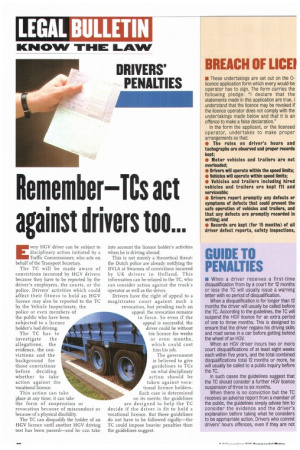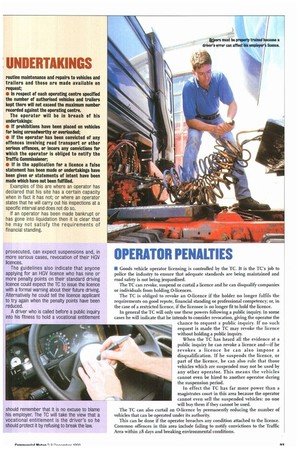GUIDE TO PENALTIES
Page 28

Page 29

If you've noticed an error in this article please click here to report it so we can fix it.
• When a driver receives a first-time disqualification from by a court for 12 months or less the TC will usually issue a warning letter with no period of disqualification.
When a disqualification is for longer than 12 months the driver will usually be called before the TC. According to the guidelines, the IC will suspend the HGV licence for an extra period of one to three months. This is designed to ensure that the driver regains his driving skills and road sense in a car before getting behind the wheel of an HGV.
When an HGV driver incurs two or more court disqualifications of at least eight weeks each within five years, and the total combined disqualifications total 12 months or more, he will usually be called to a public inquiry before the TC.
In such cases the guidelines suggest that the TC should consider a further HGV licence suspension of three to six months.
When there is no conviction but the TC receives an adverse report from a member of the public, the guidelines simply advise him to consider the evidence and the driver's explanation before taking what he considers to be appropriate action. Drivers who commit drivers' hours offences, even if they are not prosecuted, can expect suspensions and, in more serious cases, revocation of their HGV licences.
The guidelines also indicate that anyone applying for an HGV licence who has nine or more penalty points on their standard driving licence could expect the TC to issue the licence with a formal warning about their future driving. Alternatively he could tell the licence applicant to try again when the penalty points have been reduced.
A driver who is called before a public inquiry into his fitness to hold a vocational entitlement should remember that it is no excuse to blame his employer. The TC will take the view that a vocational entitlement is the driver's so he should protect it by refusing to break the law.








































































































